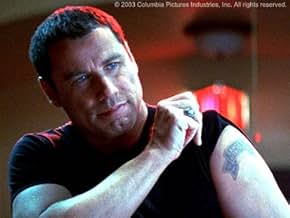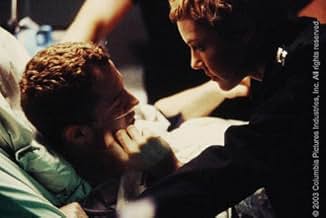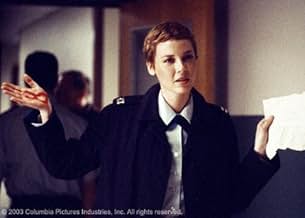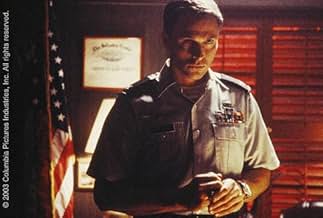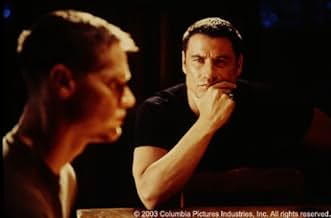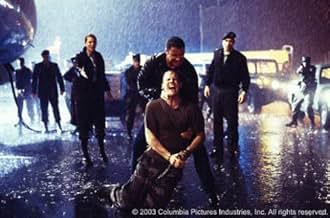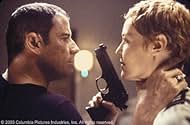The movie deals upon a commando of brave soldiers . During the training , the sergeant (Samuel L. Jackson) is killed . A previously soldier and now DEA agent (John Travolta) has to solve who is the killer . He investigates the disappearance of a legendary Army ranger drill sergeant and several of his cadets during a training exercise gone severely awry . He's helped by an officer (Connie Nielsen) . They will have to face off difficult enigmas until to find out the truth .
The picture blends action , suspense , whodunit , thriller , emotions and is pretty entertaining . The flick is tense and mysterious from the beginning till ending and is neither boring , nor dull but entertaining . The screenplay of the film has a twisted plot and the final gets an extraordinary surprise . Runtime film is overlong but is fast-moving and for that reason is amusing . The movie is similar to classic ¨Rashomon¨ (by Akira Kurosawa) and ¨The Outrage¨ (by Martin Ritt) , regarding deeds since various points of sight as people explain them . Every time the story of the bunker is retold , each person has a different partner . Interpretation by John Travolta is top-notch likeness to Connie Nielsen . Samuel L. Jackson's acting is limited , he has a secondary but excellent role . Direction by John McTiernan is outstanding and stunning . The picture will appeal to mystery enthusiasts and suspense lovers . Rating : 7/10 above average. Well worth watching.






